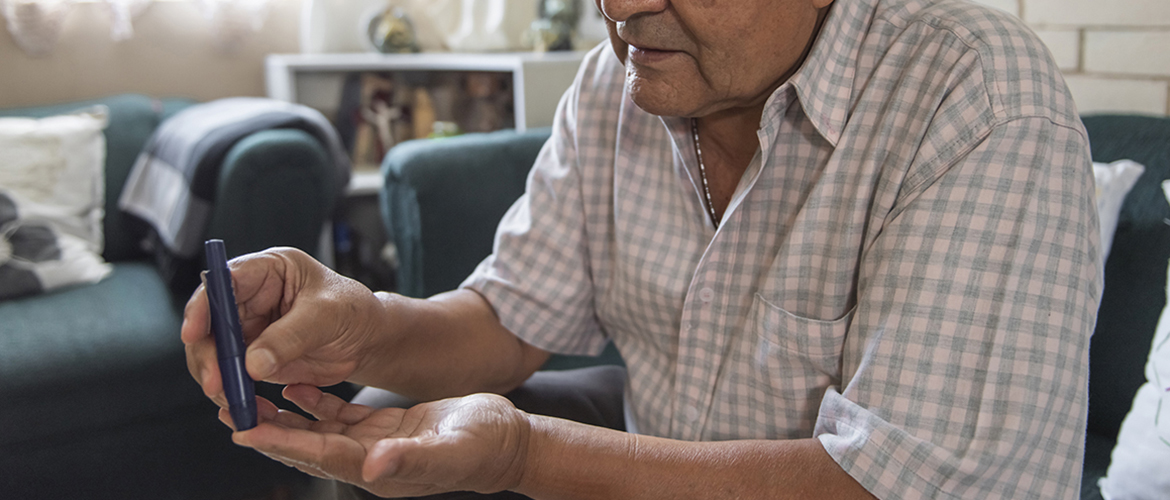At Brownsville-area community events, nurse Laura Lara is not surprised to find people with high blood sugar levels during the diabetes screenings she performs for the nonprofit Proyecto Juan Diego.
In Texas’ Rio Grande Valley, 26% of adults have been diagnosed with diabetes, according to the University of Texas Rio Grande Valley. That’s more than double the number diagnosed statewide, data from the Kaiser Family Foundation shows.
What Lara finds alarming is the number of young people with dangerously high blood sugar levels she encounters. Before she screens them, they confess suspicions of having diabetes, describing the tingling they feel in their hands and feet — symptoms of diabetic neuropathy.
“These are young people, in their late 30s, with A1C levels at 12,’” she says, which increases risks of long-term diabetes complications like blindness, nerve damage and kidney failure. “They do have insurance, but they don’t go to the doctor.”
As Lara speaks, Lidiana Ramirez, Proyecto Juan Diego’s executive director, holds up her hands and wiggles her fingers, imitating the hand tingling.
“That’s a lot of what we deal with,” she says. “We’re trying to increase awareness, but we still have a lot of work to do.”
With support from Blue Cross and Blue Shield of Texas, Proyecto Juan Diego, a multipurpose center for low-income and immigrant residents, started diabetes education classes for patients diagnosed with diabetes and prediabetes to help them make lifestyle changes and become healthier. It also performs diabetes screenings and offers some patients equipment, including wireless scales, blood pressure cuffs and glucometers, to increase health monitoring.
“We want to them to feel more empowerment and to take control of their health.”
Proyecto Juan Diego is among several BCBSTX Blue Impact℠ grant recipients statewide working to address social determinants of health, including nutrition and access to transportation and physical activity.
"By addressing crucial social determinants of health, we show we take seriously our responsibility as a leader in the health care industry to understand the broad issues that impact the health and wellness of people in our communities," says Dr. Mark Chassay, BCBSTX vice president and chief medical officer. “Our focus on optimal health outcomes includes helping to close gaps in diabetes care.”
Through education, Ramirez says Proyecto Juan Diego is trying to dispel myths about diabetes, eliminate stigma surrounding the condition and teach people the value of maintaining good health. Some people are unaware diabetes is a manageable condition, she says.
“For many people in the community, it’s a given they’re going to get diabetes,” Ramirez says. “No one talks about it.”
Others believe it’s a communicable disease. Ramirez recalled meeting a woman who blamed her husband, diagnosed with diabetes, for giving her the condition. She didn’t understand how the couple’s shared eating habits and lifestyles put her at high risk, too, Ramirez said.
Proyecto Juan Diego offers seven-week and 12-month diabetes education programs, depending on diagnoses and risk factors. Almost anyone can join the seven-week program, and more than 30 people have enrolled in it. Sessions include information about medications, nutrition, physical activity and the importance of maintaining their health so they can care for their family.
“We want to them to feel more empowerment and to take control of their health,” Ramirez says.

